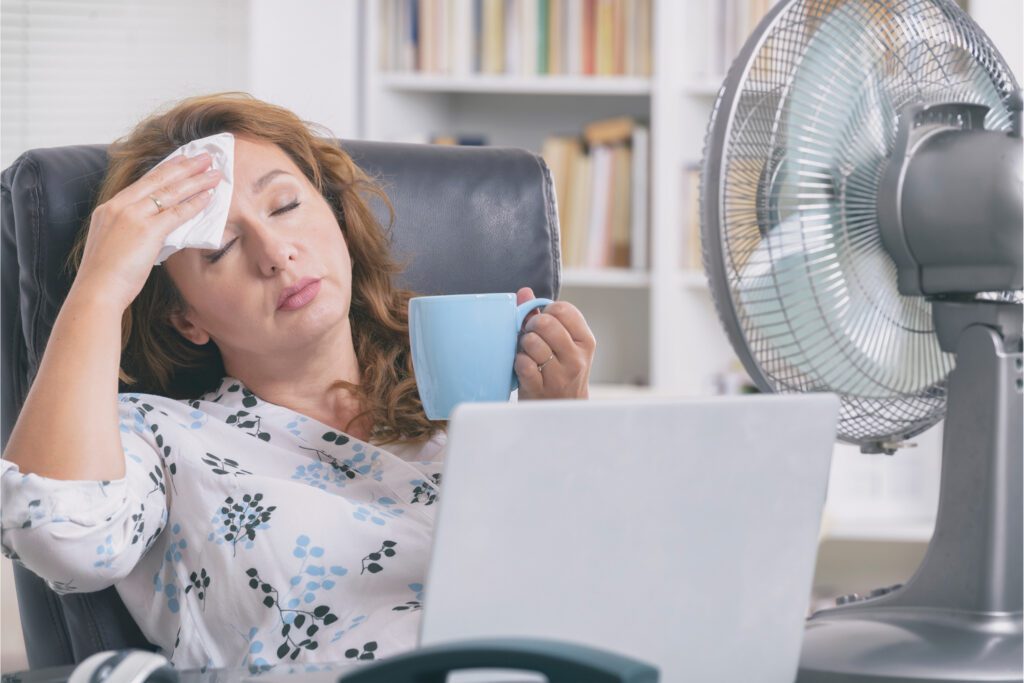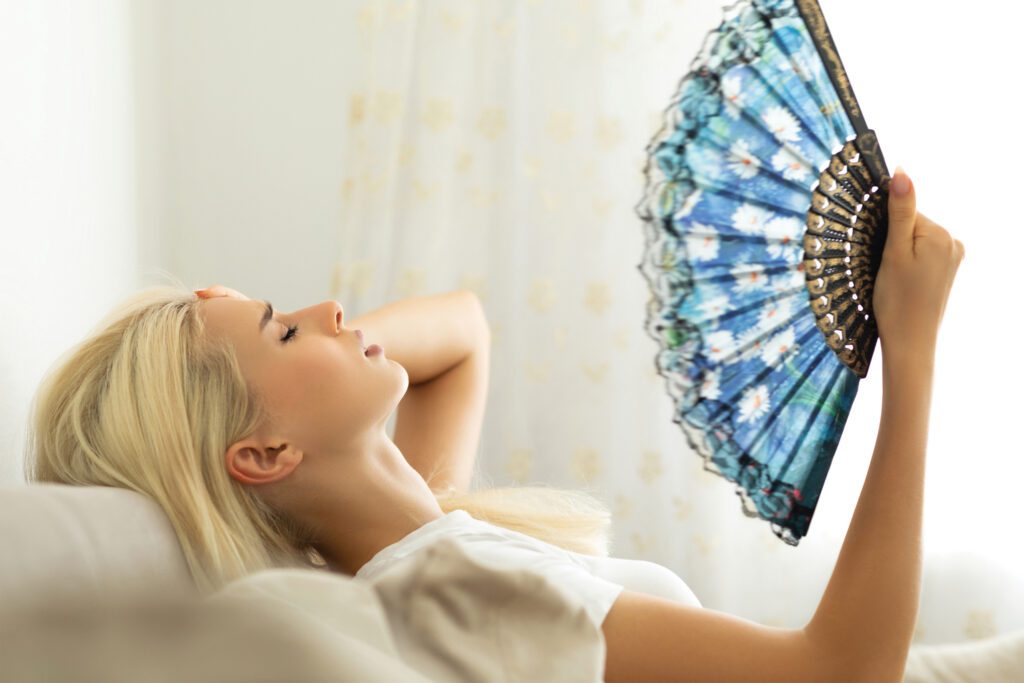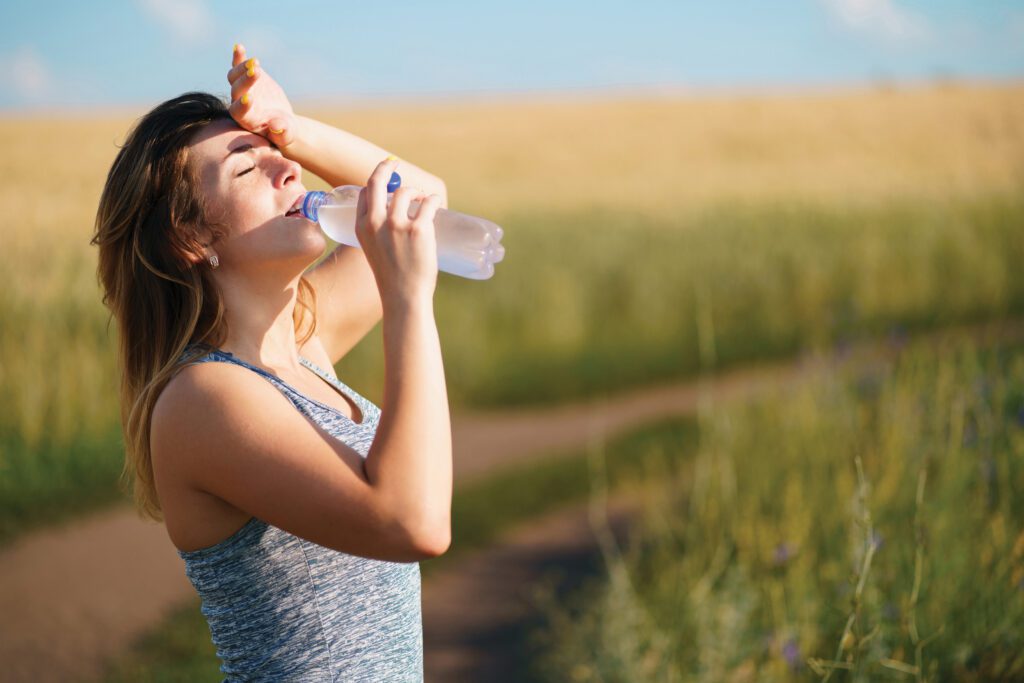Protecting Your Loved Ones from Harmful Summer Heat
Recent studies have confirmed what we’ve all been thinking – it is actually getting hotter each year. Unfortunately, heat waves can be deadly, particularly for older adults who are more easily affected by the sun’s rays. We share tips for protecting your loved ones from harmful heat this season.
According to the Centers for Disease Control and Prevention, more than 600 Americans die from extreme heat every year. What’s worse, most of these heat-related deaths are preventable. Learning how your body changes as you age can help you identify signs to look for when the temperature keeps rising, and small alterations to your daily habits can keep you cool, even when the humidity’s through the roof.
Changing with the Times
With age comes change, but certain changes are especially impactful in the way our bodies handle rising temperatures. First, the body’s ability to circulate blood decreases, making it harder to regulate temperature. Sue Rowe, the health and wellness director at Thrive Assisted Living & Memory Care, explains, “Our blood vessels don’t dilate as well as they did when we were younger. As a result, less warm blood flows to the surface of our skin during hot weather, which means heat can’t dissipate.”
Beyond that, your sweat glands lose efficiency. When you overheat, your brain sends signals that prompt your body to release hormones that cause you to sweat.


“As sweat evaporates, it cools the skin and decreases body temperature,” Rowe explains. “The decline in perspiration as we age means our bodies have a harder time regulating our internal body temperature.”
As you grow older, you’re also more likely to develop chronic medical conditions like obesity, heart disease, diabetes, and dementia, which can change your body’s typical response to heat. You’re more likely to take medications that affect your body’s ability to control temperature too.
Lastly, your ability to retain water diminishes, as does your sense of thirst, meaning you must increase your intake significantly to stay appropriately hydrated.
Evidence of Overheating
Since it’s so much easier for older adults to overheat, it’s important to know the signs and symptoms of the most common heat-related illnesses.
Dehydration – Dehydration is one of the biggest issues facing older adults today, and it can be life-threatening. At just 2% dehydration, your body’s ability to regulate heat begins to decline. Rowe notes, “Inadequate fluid intake is the primary cause of dehydration in seniors. This can be due to multiple age-related factors including: a decreased sense of thirst, immobility due to chronic pain or injury that inhibits the ability to get up and retrieve fluids, and dementia. Medications that are commonly prescribed for seniors such as diuretics, certain blood pressure medications, and certain antidepressants – if not supplemented with good fluid intake – can also contribute to dehydration.”
Signs of dehydration in older adults include tiredness, mental confusion, increased heart rate, headache, decreased blood pressure, darker urine, and a decreased need to urinate.



Dehydration is one of the biggest issues facing older adults today, and it can be life-threatening. At just 2% dehydration, your body’s ability to regulate heat begins to decline."
If dehydration is suspected, an increase in fluids is essential. While water is always a good option, sports drinks like Gatorade can help replace electrolytes and potassium quickly.
Heat Exhaustion – Heat exhaustion occurs when your body is running too low on salts and fluids as a result of extreme heat, especially if it’s paired with high humidity or physical activity. This condition is the precursor to heat stroke and can leave older adults feeling weak. Other signs include cool, clammy skin, a rapid pulse, shallow breaths, tense or contracted muscles, and the tell-tale sign: a body temperature of up to 103 degrees. With heat exhaustion, the afflicted individual is usually still producing some perspiration.
Dr. Jonathan Thompson, medical director for the emergency department at Hamilton Medical Center, explains, “If you or a loved one are experiencing heat exhaustion, the first steps for recovery include pausing any activity and resting, moving to a cooler place, and drinking cool (not iced) fluids.“
Heat Stroke – If left untreated, heat exhaustion can progress to heat stroke within 10 to 15 minutes. Heat stroke is the most serious heat-related illness, and it results from direct exposure to high temperatures. An advanced form of hyperthermia (having an abnormally high body temperature), it tends to affect people who are tired or debilitated.
“Symptoms of heat stroke include dizziness, weakness, nausea, seeing spots, ringing in the ears, bright red and dry skin due to lack of perspiration, a strong pulse, and a temperature that exceeds 103 degrees,” says Dr. Thompson.
Heat stroke is a medical emergency and should be treated as such. In addition to taking immediate steps to cool the sufferer down, he or she should be taken to the hospital for evaluation and treatment.
Keeping Your Cool
By following a few simple rules, dehydration, heat exhaustion, and heat stroke are easily avoidable.
When it comes to attire, select light-colored, loose-fitting clothing. Lighter colors reflect the sun, while darker colors absorb it. Layers are a good idea too, so that you can be comfortable both outdoors as well as in the air conditioning. A hat and sunglasses can further protect you.
If possible, you should try to limit your outdoor time during the sun’s peak hours, which are 10 a.m. to 4 p.m. Use this time to complete indoor errands like grocery shopping, or treat yourself to a movie, a trip to the mall, or an afternoon at the library. If you are going to be outside, limit strenuous activity.
Drink plenty of fluids throughout the day. “Setting a schedule might be useful if you don’t tend to feel thirsty,” says Dr. Thompson. Eliminating caffeine and alcohol will help with water retention as well, since both act as diuretics.
If you’re not sure if you’re drinking enough, use your urine as a guide – the clearer the color, the better.



Symptoms of heat stroke include dizziness, weakness, nausea, seeing spots, ringing in the ears, bright red and dry skin due to lack of perspiration, a strong pulse, and a temperature that exceeds 103 degrees."
For older adults, the summer can be a wonderful time for traveling or bonding with family. As long as you’re cautious of potential hazards and informed on the weather, you can safely savor the season.



Sue Rowe
Health and Wellness Director, Thrive Assisted Living & Memory Care



Jonathan Thompson
Medical Director, Emergency department – Hamilton Medical Center

